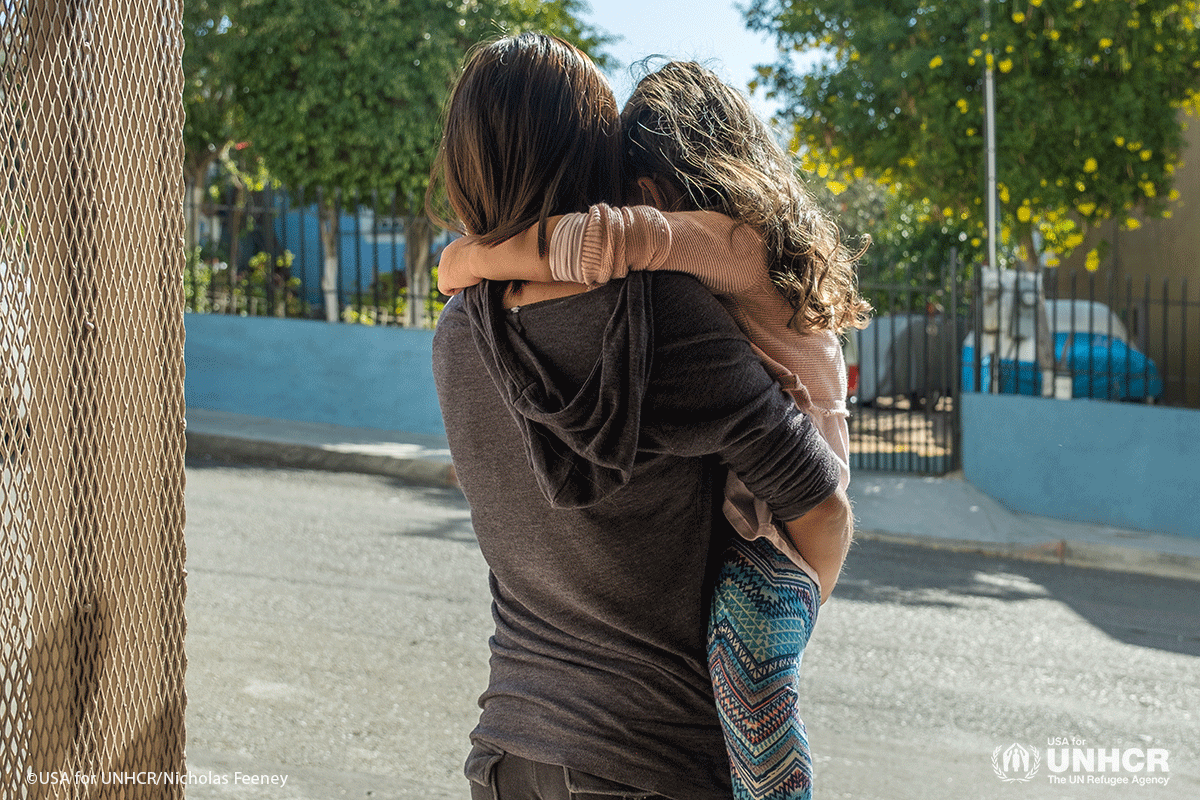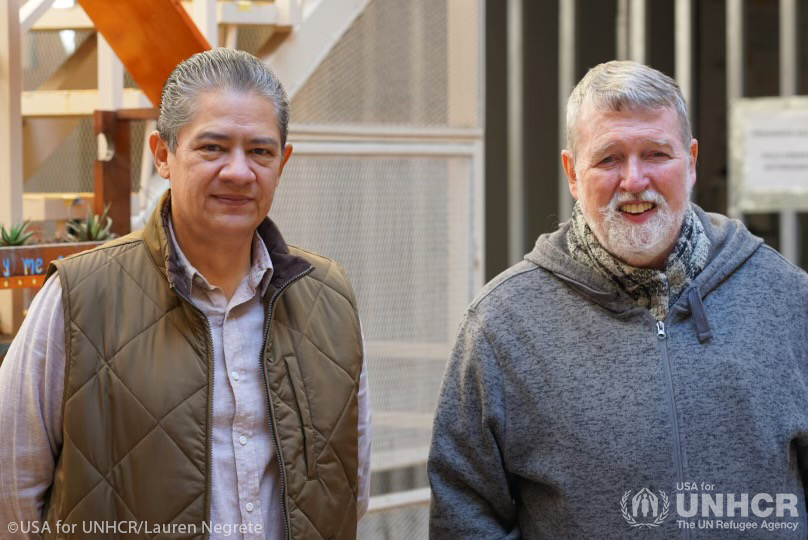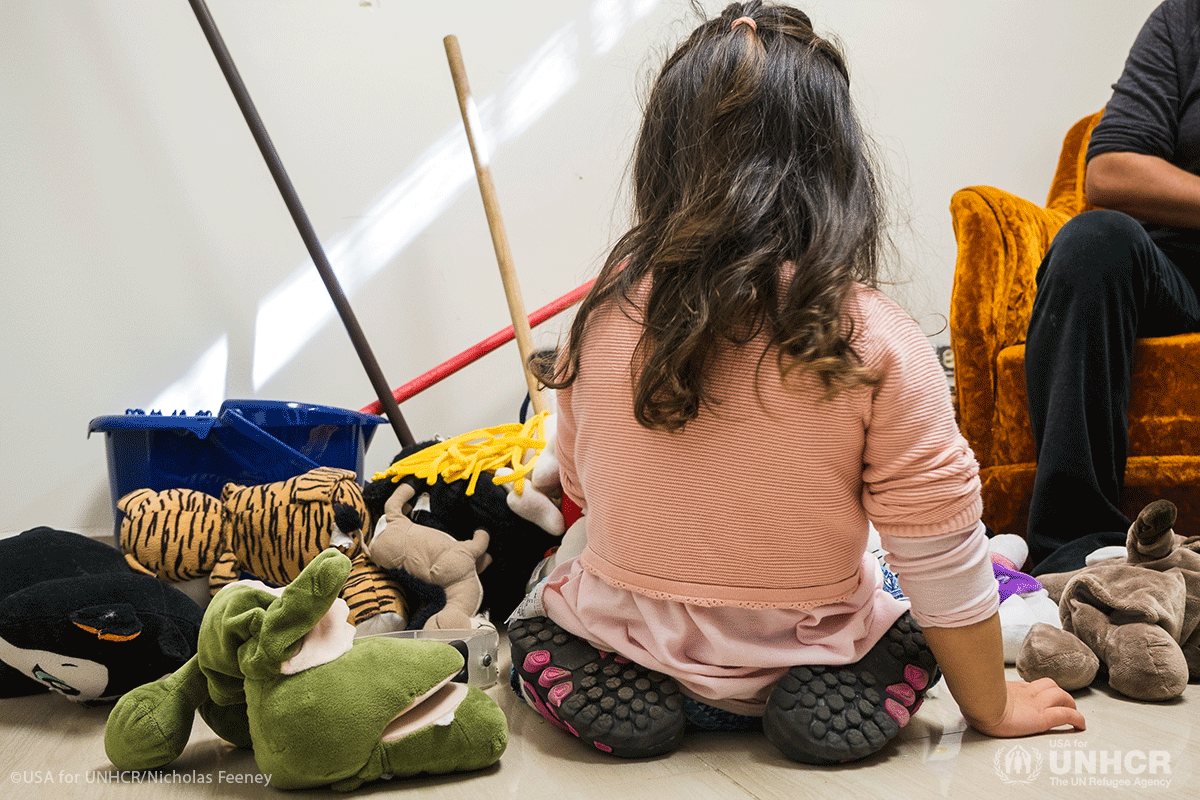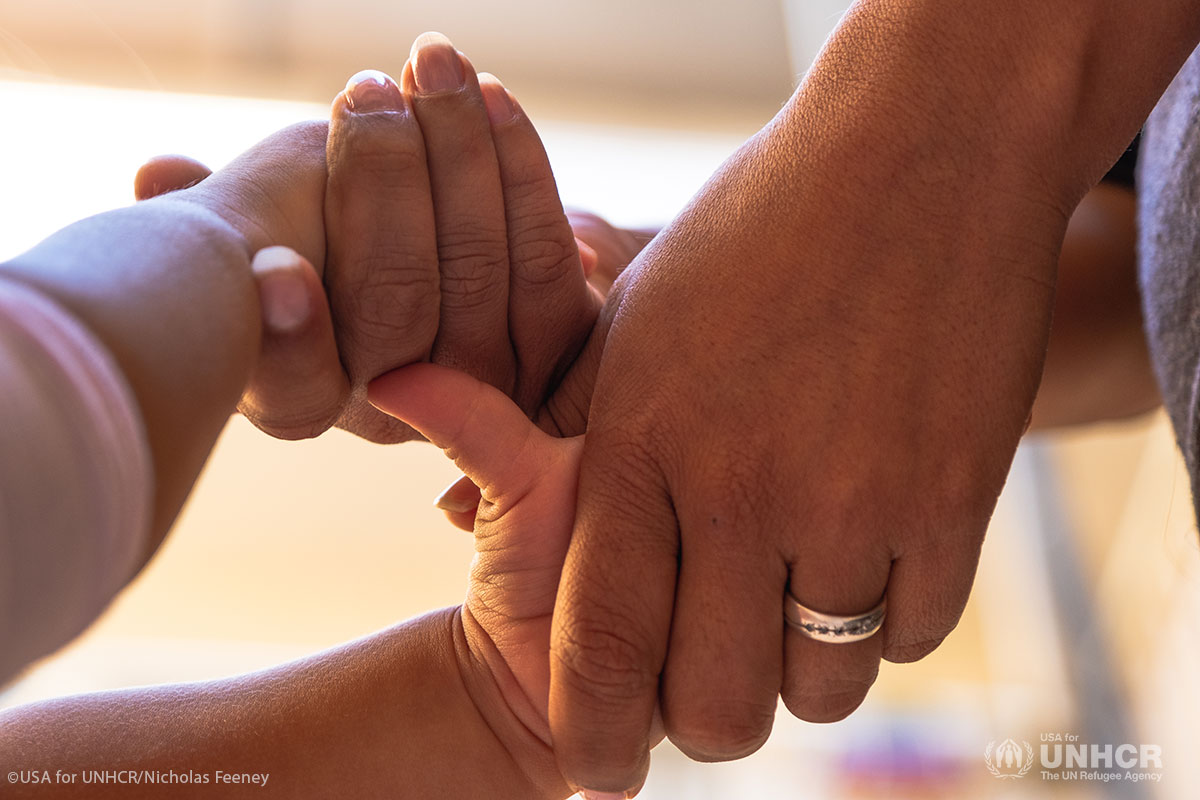A shelter in Tijuana offers relief to asylum-seekers at the border
“We fear returning to Honduras,” said Ana* an asylum-seeker from Tegucigalpa, whose family had been staying at Casa del Migrante for 30 days when we spoke to her last month. In October, USA for UNHCR staff traveled to Mexico to meet asylum-seekers from Central America who fled violence and persecution.
Ana’s family is just one of the hundreds of families that pass through the doors of Casa del Migrante each year, Tijuana’s oldest shelter for migrants and asylum-seekers. Located in a barrio high in the hills just a few miles from downtown, the shelter has been opening its doors to families as a safe place to rest and recharge for more than 30 years.

Casa del Migrante offers much more than just a safe place to rest one’s head -- it provides a robust network of services. There are childcare and education programs, an onsite staff attorney providing legal advice for those seeking asylum in the U.S. and Mexico and access to a mobile healthcare clinic three days a week. Families are allowed to stay at the shelter for 40 days.
With support from UNHCR, the UN Refugee Agency, Casa del Migrante has expanded its range of services to include a new childcare center with playspaces and bathroom facilities as well as a new trade school offering language, computer and electrical technician classes.
"We're giving people the opportunity to change their lives, be more engaged and that they can stay here [in Tijuana] and make a life for themselves," shared Father Pat Murphy, Shelter Director at Casa del Migrante.

Shelter Director Father Pat Murphy (right) with Assistant Director, Giberto Martínez.
For Ana, her husband Rafael and their four-year-old daughter Julia, the month’s long stay at the shelter is a safe haven after a perilous journey fleeing threats of extortion and violence from gangs in Honduras.
When local gangs first demanded money from Ana’s family they fled to another neighborhood in Tegucigalpa. The family settled into their new home, Rafael working in a factory and Ana as a nurse. But the gangs found them again. They arrived at their home and demanded more money and again threatened violence. The family left the next day.
“We quit our jobs and left all our possessions,” shared Ana in a hushed, shaky voice. While Julia played contently with stuffed animals at her mother’s feet, the trauma of the family’s experience remained painfully raw as Ana recalled their harrowing journey.

The family fled Honduras, taking a bus through Guatemala and then through Mexico. The goal was to seek asylum in the United States where Rafael has family. The family of three crossed the border into Texas where they were detained and sent back to Mexico under a provision of U.S. health law, section 265 of Title 42, which cites the need to protect the country from the further spread of COVID-19.
The United States has long had a legal framework to guarantee the right to seek asylum to individuals who arrive at our borders and ask for protection. But since March 20, 2020, that fundamental right has been largely suspended at U.S. land borders.
But the family was not simply sent back across the Texas border to Mexico -- they were flown to San Diego and then returned to Mexico in Tijuana. They arrived scared, confused and in an unfamiliar city. The family’s immediate concern was shelter and safety for their daughter.
“The first shelter we stayed at [in Tijuana] was ugly and dirty,” said Ana. “We were sleeping on the floor.”
Fortunately, the family found Casa del Migrante and was welcomed with open arms. At the time of our interview, Ana’s husband Rafael was at work -- he’s been finding day labor trying to save money to rent a small apartment when their 40-day stay expires.

The future remains uncertain but Ana has grown more hopeful during her stay at Casa del Migrante. “We arrived traumatized but Julia has been able to reclaim her childhood here,” shared Ana. “Julia feels like Casa del Migrante is home. She’s even taking English lessons.”
The family is currently looking for an apartment in Tijuana close to the shelter so Julia continues to feel connected to her new home. They intend to seek asylum once the border is reopened.
As we left Casa del Migrante, Julia shouted “goodbye!” in English with a big smile.
*Please note, some names have been changed for protection reasons.
How you can help…
The humanitarian situation at the U.S.-Mexico border is complex but one thing is simple -- families like Ana's who are fleeing violence and persecution deserve our compassion. Get the facts about the U.S. asylum and border policies impacting the situation in our latest explainer.


